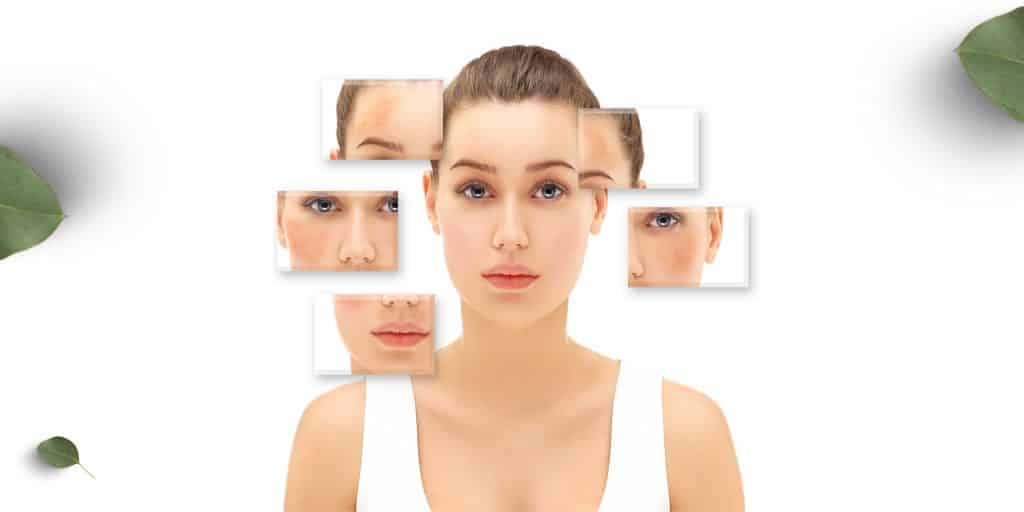Although dealing with hyperpigmentation can bring challenges, it doesn’t need to persist forever. You are at the correct place if you wish to get back clear, even-toned skin. This complete guide will cover how to get rid of hyperpigmentation, including its causes, effective treatments, and preventative measures. Say goodbye to inconsistent skin tone and hail a radiant and self-assured individuality.
Understanding Hyperpigmentation
Hyperpigmentation is a condition characterised by the discolouration of particular areas of the skin as a result of an overabundance of melanin, the pigment that gives skin colour. This condition, which is frequently due to a variety of factors, may show up as dark blotches, patches, or an uneven skin tone.
- Sun Exposure: Long exposure to UV radiation from the sun can cause the production of melanin. Which can result in blemishes and sunspots.
- Hormonal Changes: Melasma is a kind of hyperpigmentation that usually appears as dark patches on the face. Can be caused by hormonal swings during pregnancy, menopause, or as a result of hormonal drugs.
- Inflammation: Acne, eczema, psoriasis, and other inflammatory skin diseases can result in post-inflammatory hyperpigmentation, or dark patches forming on the skin as it heals.
- Genetic History: Some people have a hereditary predisposition to hyperpigmentation. Which makes them more prone to uneven skin tone and dark blotches.
Home Remedies for Hyperpigmentation:

Let’s explore home remedies on how to get rid of hyperpigmentation.
1. Apple Cider Vinegar
Add some apple cider vinegar and water to treat the dark spots. Using a cotton ball, apply the mixture to the affected regions. After a few minutes of drying, wash it off. Acetic acid, found in vinegar, exfoliates the skin and may lessen hyperpigmentation.
2. Aloe Vera Gel
Before going to bed, apply pure aloe vera gel to hyperpigmented areas, and then wash it off in the morning. Aloin, a naturally occurring depigmenting substance found in aloe vera, has the potential to gradually lighten dark spots.
3. Green Tea Extract
Apply a green tea bag to dark areas twice a day after soaking it in boiling water for a few minutes and letting it cool. Antioxidants included in green tea may help lessen hyperpigmentation and lower the formation of melanin.
4. Lemon juice
Apply a freshly squeezed lemon juice and water mixture with a cotton ball to regions of dark skin. Lemon juice’s citric acid is popular for its skin-whitening properties. Handle with care while using lemon juice, as it might irritate skin, particularly sensitive skin.
5. Turmeric Mask
Mix water and turmeric powder to create a paste, apply it to areas with high pigmentation, and leave it on for 15 to 20 minutes before rinsing it off. Due to its antioxidant and anti-inflammatory qualities, turmeric can help lighten skin tone.
6. Milk Soak
Apply a cotton ball dipped in milk gently to areas of dark skin twice a day. Over time, the lactic acid in milk can help reduce hyperpigmentation by acting as a natural exfoliator.
7. Licorice Extract
Search for skincare products with licorice extract, since it has been proven to lighten dark spots and reduce the development of melanin. For optimal results, follow the instructions.
Medical Treatments for Hyperpigmentation:
Discover the medical treatments on how to get rid of hyperpigmentation.
1. Retinoids
Topical retinoids, such as adapalene or tretinoin, increase cell turnover and encourage the removal of pigmented skin cells, which can help improve skin texture and minimise hyperpigmentation.
2. Chemical peels
During a chemical peel, a skincare professional applies a chemical solution to the skin, which helps in the formation of new, uniformly pigmented skin cells while exfoliating the outer layer.
3. Laser Therapy
A more even complexion can result from a variety of laser treatments, including fractional laser resurfacing and intense pulsed light (IPL), which target and breakdown excess melanin in the skin.
4. Microdermabrasion
This surgical technique can help erase hyperpigmentation by gently exfoliating the skin with a specific instrument that removes dead skin cells and promotes cell turnover.
Prevention of hyperpigmentation
To stop hyperpigmentation, you need to take care of your face regularly and protect it from the sun. You will be less likely to get dark spots and an uneven skin tone if you follow these tips:
- Sunscreen: Every day, even on cloudy days, use a broad-spectrum sunscreen with SPF 30 or higher, and reapply it every two hours when you’re outside.
- Protective Clothing: Cover up with clothes, sunglasses, and a wide-brimmed hat to keep UV rays off of surface skin.
- Avoid Irritants: It is best to avoid using strong skin care products and treatments as much as possible because they can irritate the skin and make it darker.
- Maintain a Healthy Lifestyle: For better skin health and a lower risk of hormone imbalances, eat a healthy diet, make sure you drink enough water, and keep your stress under control.
Conclusion: Get Rid of Hyperpigmentation
Although many people worry about dealing with hyperpigmentation, it can be controlled with the correct techniques. It’s important to be consistent and patient, regardless of whether you prefer at-home natural cures or professional treatments. You may get a clearer, brighter complexion and boost your self-confidence in your skin by understanding what causes hyperpigmentation and implementing preventive measures.
FAQs
Q1. Is it possible to entirely cure hyperpigmentation?
Complete removal may not always be achievable, particularly in cases of deeply ingrained pigmentation, even though hyperpigmentation can be efficiently treated and reduced. Maintaining good skin care practices and wearing sunscreen can help stop its recurrence.
Q2. When using home remedies for hyperpigmentation, are there any negative effects?
Specifically for people with sensitive skin, some home remedies, such as lemon juice or apple cider vinegar, might cause irritation or discomfort. It’s crucial to perform a patch test beforehand and to cease using them if any unfavourable reactions develop.
Q3. Is hyperpigmentation a sign of a medical emergency?
Hyperpigmentation is typically not a sign of a major health issue and is a harmless disease. To get a precise diagnosis and check out any underlying medical issues, it’s crucial to see a dermatologist.




